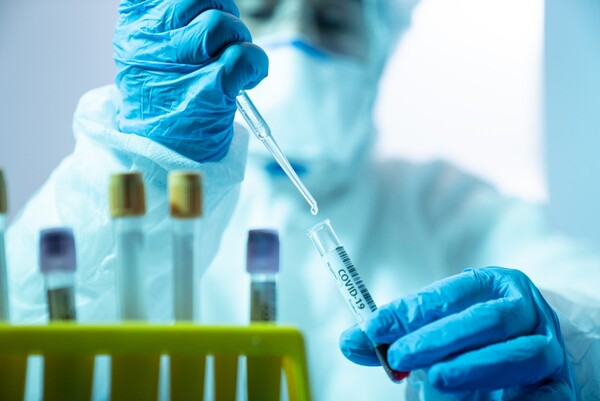Calls are mounting for Korea to reduce foreign dependency and increase the self-supply ratio of active pharmaceutical ingredients (APIs) to prepare for the escalating hegemonic rivalry between the U.S. and Korea.
On March 31, the U.S. Treasury Department announced a detailed guideline on exempting taxes on electric vehicles as part of the Inflation Reduction Act (IRA).

According to the guideline, EV makers should not procure battery parts from “foreign groups of concern” from 2024 and core minerals from 2025 to receive tax benefits. The guideline did not specify China, but the move was seen to target China.
Korean makers can use Chinese core minerals by processing them here now. To get tax exemptions from 2025, however, they cannot do so. The problem is that U.S. policy adversely affects Korean pharmaceutical products’ export to America, posing a heavy burden on domestic drugmakers, according to industry executives.
Last month, the U.S. announced the “Report on Biotechnology and Bio Manufacturing Innovation” as the follow-up of its bio administrative order, vowing to “build the manufacturing capacity of a broad range of synthetic and biological bioproducts within five years to produce at least 25 percent of raw materials for small molecular drugs.”
The report said most small molecular drugs are synthesized through chemical processes abroad, including in China and India, warning that it would result in risks in supply networks.
The U.S. government keeps Chinese drugs in check because of the high share the Chinese APIs take in global markets.
According to the Korea Health Industry Development Institute, Chinese chemical-synthesized APIs accounted for the lion’s share, with 17.0 percent, in 2020, followed by Ireland’s 13.0 percent and America’s 9.0 percent. Korea only accounted for 4.7 percent. Ireland dominated the Bio API market, with a share of 41.3 percent.
Moreover, China plans to promote high-value-added items until 2025 in addition to the generic APIs in which it has strength while innovating manufacturing processes and developing cutting-edge process technology.
The U.S. Bio Innovation Report stopped short of warning against procuring raw materials from foreign groups of concern.
However, experts say the U.S. moves to strengthen supply networks, resulting from its intention to keep China in check, could spread to the biopharmaceutical field anytime.
Korean exports of finished medicines to the U.S. totaled 1.44 trillion won ($1.08 billion) in 2021, the second largest after Germany. The API shipment to the U.S. also totaled 177.5 billion, the third largest among the export destinations of its pharmaceutical products.
Accordingly, experts advise the government and industry to devise measures to offset the negative factors of the new U.S. policy, given the high share America takes in Korea’s pharmaceutical exports.
More specifically, they call for reducing reliance on Chinese APIs while raising the self-sufficiency of homegrown products.
According to the Ministry of Food and Drug Safety, Korea’s self-supply rate of API has maintained the high-20 percent range on average over the past decade, from 2012 to 2021. However, the rate plunged to 16.2 percent in 2019 before rebounding to 24.4 percent in 2021.
In contrast, API import from China has increased sharply over the past three years, accounting for 34 percent of the total. There is also a wide gap in registered APIs between the two countries. Among the 7,331 registered APIs, only 1,335 were made here, with the other 4,609 coming from China, Japan, and India.
Accordingly, the domestic biopharmaceutical industry asks the government to extend the preferred pricing policy for drugs using domestic APIs from the current one year to five years as well as investment support and tax benefits to help facilitate the development of homegrown APIs.
“As the U.S. bio administrative order targeting China will affect, directly and indirectly, Korean products’ advances to the U.S. market, we need to prepare,” an industry executive said. “More fundamentally, we should note that API makers have the upper hand in price negotiations, as seen the sharp rise in API prices during the Covid-19 pandemic.”

